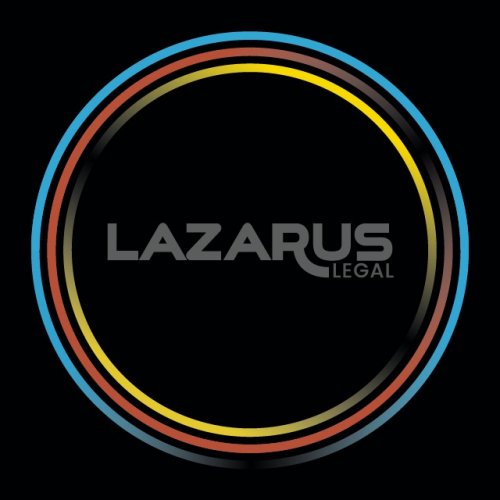Best Legal Document Lawyers in Sydney
Share your needs with us, get contacted by law firms.
Free. Takes 2 min.
List of the best lawyers in Sydney, Australia
About Legal Document Law in Sydney, Australia
Legal document law in Sydney, Australia, encompasses the drafting, managing, and interpretation of a wide range of legal documents. These documents can include contracts, wills, power of attorney, and property deeds, among others. Given the legal implications of these documents, it is vital to properly understand the requirements and standards imposed by Australian law. The laws ensure that the documents are binding and enforceable, protecting the interests of all involved parties.
Why You May Need a Lawyer
There are various situations where working with a lawyer for legal documents may become essential. One might need legal assistance for drafting a will to ensure their estate is managed according to their wishes. Individuals involved in buying or selling property may require document preparation and review to safeguard their interests. Businesses often need contracts to govern relationships with employees, suppliers, and partners. Additionally, complex legal situations such as disputes, litigations, or compliance issues necessitate professional legal advice to mitigate risks and ensure legal compliance.
Local Laws Overview
Sydney follows the broader legal framework of New South Wales (NSW) and the Commonwealth of Australia regarding legal documents. One key law is the Conveyancing Act 1919, which outlines rules related to property dealings and transactions. The Succession Act 2006 governs wills and estates, ensuring that testamentary intentions are fulfilled. The Corporations Act 2001 regulates corporate dealings, affecting documentation related to businesses. Familiarity with these laws ensures the creation of compliant and effective legal documents.
Frequently Asked Questions
What is the importance of having legally binding documents?
Legally binding documents ensure the enforceability of rights and responsibilities agreed upon by the parties, thereby providing legal protection and clarity.
Can I draft legal documents without a lawyer in Sydney?
While it's legally possible, drafting without a lawyer could result in errors or omissions that may render a document unenforceable. It's advised to seek legal assistance to ensure compliance with laws.
What happens if a legal document is improperly executed?
A document that is improperly executed may be rendered void or challenged in a court of law, potentially resulting in significant legal ramifications.
How do I ensure my will is valid in Sydney?
To ensure your will is valid, it must be in writing, signed by you, and witnessed by at least two other people who are not beneficiaries of the will.
Are electronic signatures legally recognized in Sydney?
Yes, electronic signatures are legally recognized in NSW for most documents, barring a few exceptions like wills and specific property-related documents.
What should a valid power of attorney include?
A valid power of attorney should clearly specify the powers granted, the circumstances under which they can be exerted, and be signed in the presence of a witness.
How can I challenge a legal document in Sydney?
You may challenge a legal document through the courts, typically arguing issues of fraud, undue influence, or duress, among other grounds.
Is it necessary to notarize legal documents in Sydney?
Notarization is not typically necessary in Australia; however, witnessing by an appropriate person may be required for certain documents.
How can I store legal documents securely?
Legal documents should be stored in a safe, secure place such as a safe deposit box, and copies may be lodged with your lawyer for added security.
What is a statutory declaration, and when is it used?
A statutory declaration is a written statement declared to be true in the presence of an authorized witness, used in situations where written evidence is required but an affidavit is unnecessary.
Additional Resources
The Law Society of NSW can provide guidance and services relating to legal documents. The NSW Department of Attorney General's Office offers resources on compliance and guidelines. Legal Aid NSW can provide support and resources for those unable to afford legal assistance.
Next Steps
If you find yourself requiring legal assistance regarding legal documents, the first step is to consult with a qualified lawyer. Gather any existing documents or information that might be relevant, and get a clear understanding of your specific needs and objectives. You can consider reaching out to local legal services, exploring online legal resources, or contacting local law societies to connect with an appropriate lawyer. Stay informed about relevant laws to ensure that all documentation is up-to-date and compliant.
Lawzana helps you find the best lawyers and law firms in Sydney through a curated and pre-screened list of qualified legal professionals. Our platform offers rankings and detailed profiles of attorneys and law firms, allowing you to compare based on practice areas, including Legal Document, experience, and client feedback.
Each profile includes a description of the firm's areas of practice, client reviews, team members and partners, year of establishment, spoken languages, office locations, contact information, social media presence, and any published articles or resources. Most firms on our platform speak English and are experienced in both local and international legal matters.
Get a quote from top-rated law firms in Sydney, Australia — quickly, securely, and without unnecessary hassle.
Disclaimer:
The information provided on this page is for general informational purposes only and does not constitute legal advice. While we strive to ensure the accuracy and relevance of the content, legal information may change over time, and interpretations of the law can vary. You should always consult with a qualified legal professional for advice specific to your situation.
We disclaim all liability for actions taken or not taken based on the content of this page. If you believe any information is incorrect or outdated, please contact us, and we will review and update it where appropriate.
















